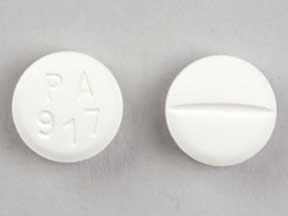Torsemide Dosage
Medically reviewed by Drugs.com. Last updated on Aug 4, 2023.
Applies to the following strengths: 5 mg; 10 mg; 20 mg; 100 mg; 10 mg/mL; 40 mg; 60 mg
Usual Adult Dose for:
Additional dosage information:
Usual Adult Dose for Edema
Edema Associated with Congestive Heart Failure:
IV and oral: 10 to 20 mg once a day; if diuresis remains inadequate, titrate upward by approximately doubling the dose until desired response is achieved; single doses higher than 200 mg have not been adequately studied.
Edema Associated with Renal Disease:
IV and oral: 20 mg once a day; if diuresis remains inadequate, titrate upward by approximately doubling the dose until desired response is achieved; single doses higher than 200 mg have not been adequately studied.
Edema Associated with Hepatic Disease:
IV and oral: 5 to 10 mg once a day together with an aldosterone antagonist or a potassium-sparing diuretic; if diuresis remains inadequate, titrate upward by approximately doubling the dose until desired response is achieved; single doses higher than 40 mg have not been adequately studied.
Comments: Chronic use of any diuretic in hepatic disease has not been studied adequately.
Usual Adult Dose for Hypertension
5 mg orally once a day; if diuresis remains inadequate after 4 to 6 weeks, titrate up to 10 mg orally once a day; if diuresis remains inadequate with 10 mg, an additional antihypertensive should be added.
Renal Dose Adjustments
Dose adjustment(s) may be required; however, no specific guidelines have been suggested; contraindicated in patients with anuria.
Liver Dose Adjustments
Use with caution
Precautions
Safety and efficacy have not been established in patients younger than 18 years.
Consult WARNINGS section for additional precautions.
Dialysis
Data not available
Other Comments
Administration advice: IV: Administer as a bolus over 2 minutes or as a continuous infusion; if administered through an IV line, flush with normal saline before and after administration.
Storage requirements: IV: The manufacturer product information should be consulted.
Monitoring:
- Metabolic: Monitor electrolytes regularly; creatinine, glucose, lipids, and uric acid should also be monitored regularly in patients taking this drug long-term, especially those with a tendency to hyperuricemia and gout or those with latent or manifest diabetes.
Patient advice: Advise patients to use caution when driving or operating machinery until the response to initial treatment has been determined.
Frequently asked questions
More about torsemide
- Check interactions
- Compare alternatives
- Pricing & coupons
- Reviews (7)
- Drug images
- Side effects
- During pregnancy
- Drug class: loop diuretics
- Breastfeeding
- En español
Patient resources
Other brands
Professional resources
Other brands
Related treatment guides
Further information
Always consult your healthcare provider to ensure the information displayed on this page applies to your personal circumstances.


